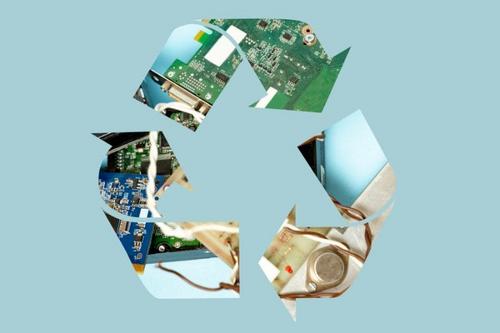
In our increasingly digital world, the proliferation of electronic devices has led to a parallel increase in electronic waste, or e-waste. E-waste consists of discarded electronic devices, from old smartphones to outdated laptops. Proper electronic waste disposal is not just a matter of convenience; it benefits individuals, communities, and the environment. This article delves into the advantages of responsible e-waste disposal.
Environmental Conservation¶
E-waste contains hazardous materials like lead, mercury, and cadmium, which can harm the environment if disposed of incorrectly. When e-waste is improperly discarded in landfills or incinerated, these toxic substances can contaminate soil and water. Responsible e-waste disposal ensures that these harmful materials are safely managed, reducing the environmental impact.
Resource Recovery¶
Electronic devices comprise valuable materials such as metals, plastics, and glass. These resources can be recovered and reused through recycling and proper disposal methods in the manufacturing of new electronic products. This conserves natural resources and reduces the energy required to extract and process raw materials.
Energy Conservation¶
The manufacturing of electronic devices consumes a substantial amount of energy. Recycling e-waste and reusing materials reduces the demand for energy-intensive processes like mining, refining, and manufacturing. This leads to decreased greenhouse gas emissions and a more sustainable use of energy resources.
Job Creation¶
The e-waste recycling industry generates employment opportunities in collection centers, recycling facilities, and refurbishment businesses. Responsible e-waste disposal supports job growth in local communities, contributing to economic development.
Data Security¶
Personal and sensitive information can be stored on electronic devices. Proper disposal ensures that data is securely wiped or destroyed, safeguarding individuals and businesses from data breaches and identity theft.
Compliance with Regulations¶
Many regions have implemented strict regulations governing electronic waste disposal due to its environmental and health hazards. Complying with these regulations through responsible disposal methods helps individuals and businesses avoid legal consequences.
Reduced Health Risks¶
Exposure to the toxic substances in e-waste can lead to various health issues, including respiratory problems, skin disorders, and neurological conditions. Proper disposal minimizes the risk of these health problems for individuals and the communities where e-waste is processed.
Extended Product Lifespan¶
Refurbishing and recycling electronic devices can extend their useful lifespan. This reduces the demand for new products and makes technology more accessible to those with limited financial resources.
Environmental Education¶
Promoting responsible e-waste disposal raises awareness about the environmental impact of electronic devices. It encourages consumers to make more informed choices when purchasing and disposing of electronics.
Improved Aesthetics¶
Accumulated e-waste can clutter homes, businesses, and public spaces. Proper disposal leads to cleaner, more visually appealing environments.
In conclusion, the benefits of electronic waste disposal extend far beyond simply getting rid of old gadgets. Responsible disposal practices protect the environment from harmful toxins, conserve valuable resources, reduce energy consumption, and create economic opportunities. Moreover, it enhances data security, promotes regulatory compliance, and improves overall well-being by reducing health risks associated with e-waste exposure. As society continues to embrace technology, it is essential to prioritize responsible e-waste disposal to mitigate its adverse effects and create a sustainable future for all.

